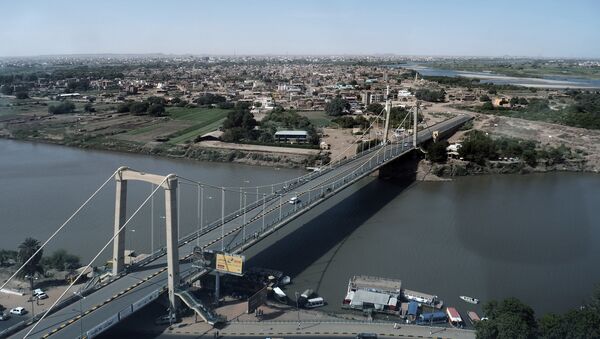New Delhi (Sputnik): Sudan has asked the foreign acquisition unit of India's Oil and Natural Gas Corp's (ONGC) to withdraw an arbitration claim that was filed against the government of Sudan in a London court in April this year. ONGC had initiated the process to recover around $425 million dues pending from Sudan's purchase of ONGC's share of crude oil from the Greater Nile Oil Project (GNOP). The GNOP was divided between Sudan and South Sudan with the majority of the oil blocks falling under the latter following the secession in 2011.
READ MORE: Sudan Hopes to Join BRICS in Near Future — Presidential Aide
The dues also include $100 million of the building cost of the oil pipeline by the Indian firm that was agreed to prior to the purchase of the 25% stake in the Greater Nile Oil Project (GNOP) in 2003.
"It was informed that the government of Sudan is hopeful that its economic situation shall be improving henceforth with the recent agreement it reached with the government of South Sudan on the resumption of crude oil transportation from South Sudan's territory through the Heglig-Port Sudan pipeline. The visiting delegation requested ONGC Videsh to withdraw the arbitration process instituted against the government of Sudan," a statement issued by the country's largest state-owned downstream firm reads.
READ MORE: Myanmar Invites India to Make Investments in Hydrocarbon Sector
The request by Sudan comes after last month's agreement with the parties in South Sudan over a draft governance proposal meant to end the three-year civil war. Although certain issues continue to impede a final peace agreement, the negotiating parties of South Sudan and Sudan have agreed to facilitate the resumption of oil production in Blocks 1, 2, and 4 (Unity state) and 5A (Tharjiath), which have been suspended since 2012.
Meanwhile, ONGC says it has not received the payment of dues for crude oil purchased by the Sudanese government over the last several years. The Sudanese economy was has been crippled by US sanctions and the matter is further compounded by its inability to fill the requirement of its local refineries as most of the oil blocks went to South Sudan post-secession. Sudan has been forced to purchase oil from ONGC to fill the gap.



